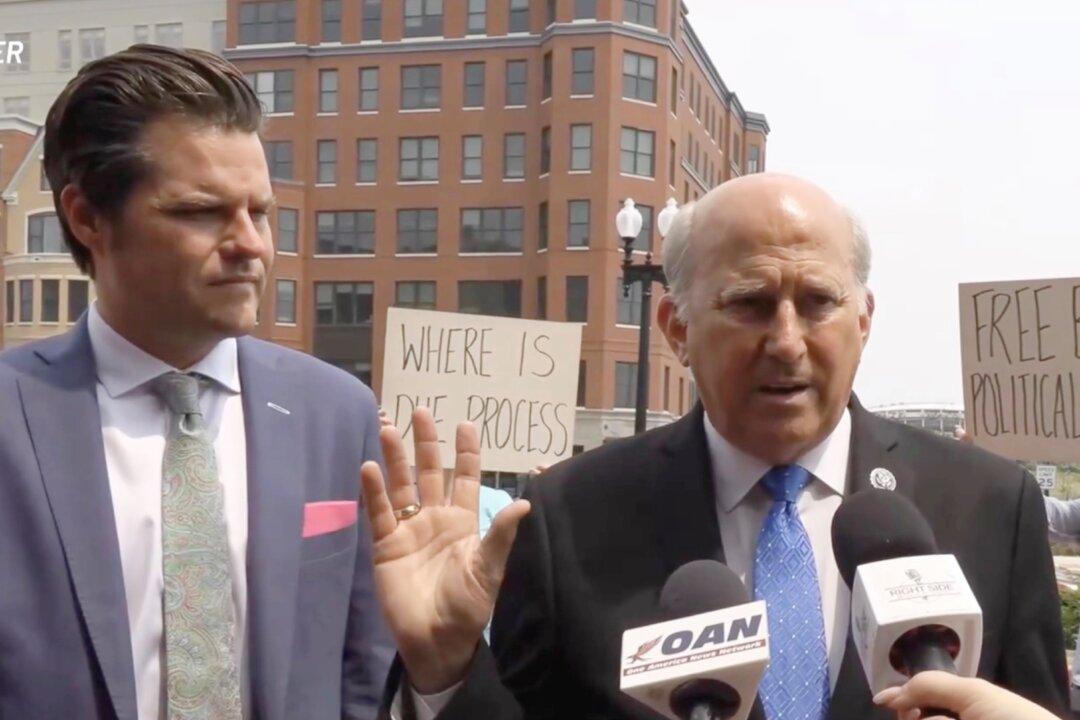Two days after being denied entrance into the Department of Justice and then being chased away by protesters, four Republican lawmakers probing the conditions of the inmates arrested in connection with the Jan. 6 breach of the U.S. Capitol have been barred from a facility where 50 of the prisoners are said to be held.
Reps Marjorie Taylor Greene (R-Ga.), Matt Gaetz (R-Fla.), Louie Gohmert (R-Texas), and Paul Gosar (R-Ariz.) showed up at the D.C. Central Detention Facility on the morning of July 29. The lawmakers have been inquiring into reports that those involved in the incursion into the Capitol have been severely beaten, held in solitary confinement, and denied access to evidence about their own cases.




